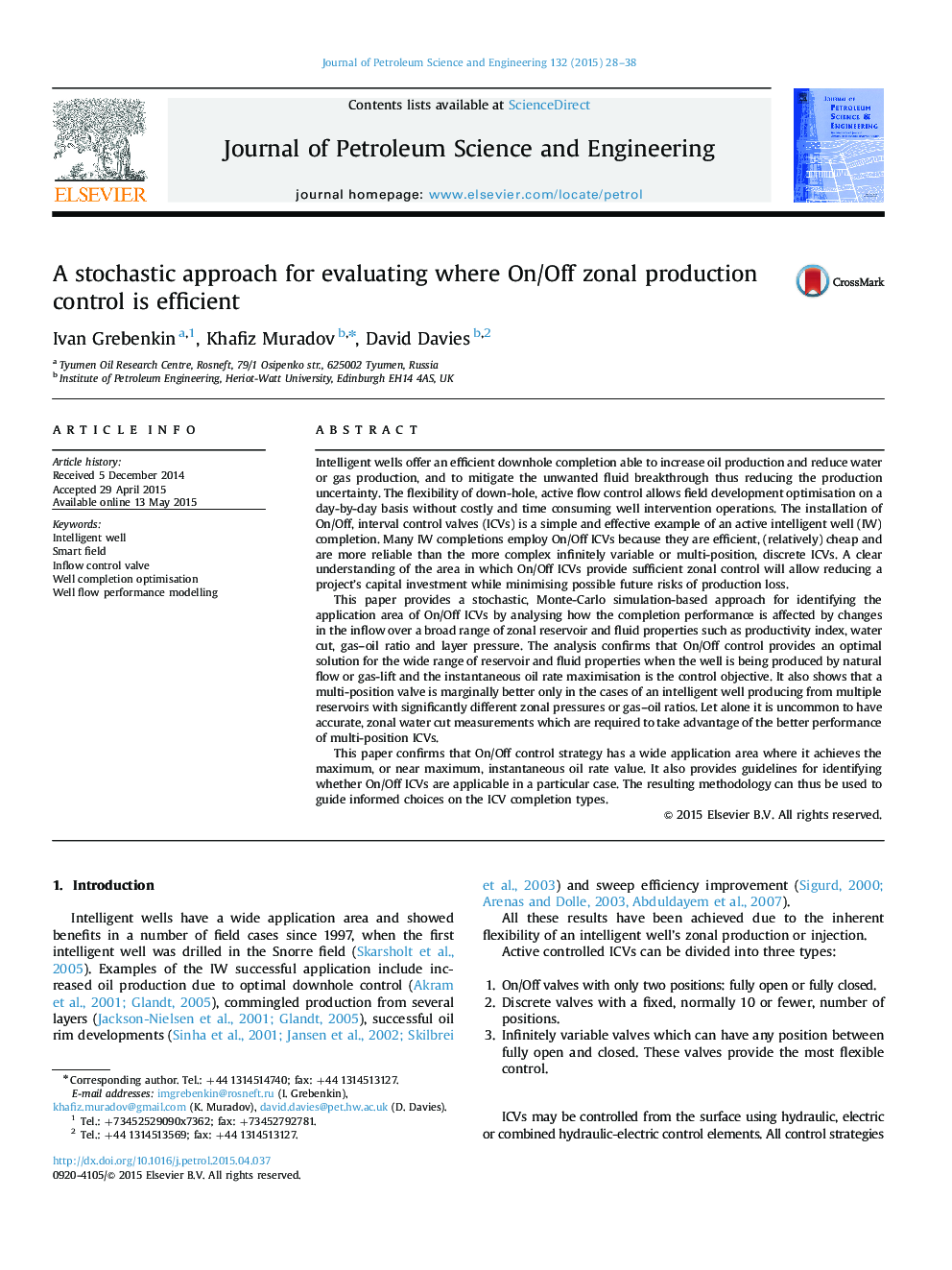| کد مقاله | کد نشریه | سال انتشار | مقاله انگلیسی | نسخه تمام متن |
|---|---|---|---|---|
| 1754831 | 1522809 | 2015 | 11 صفحه PDF | دانلود رایگان |
• We critically review the intelligent well (I-well), downhole flow control options.
• We propose a fast, analytical method of modelling intelligent well performance.
• We propose and verify a fast, robust, optimal I-well control method.
• We compare statistically the applicability of various I-well completion options.
• We propose applicability criteria for the most reliable I-well completion option.
Intelligent wells offer an efficient downhole completion able to increase oil production and reduce water or gas production, and to mitigate the unwanted fluid breakthrough thus reducing the production uncertainty. The flexibility of down-hole, active flow control allows field development optimisation on a day-by-day basis without costly and time consuming well intervention operations. The installation of On/Off, interval control valves (ICVs) is a simple and effective example of an active intelligent well (IW) completion. Many IW completions employ On/Off ICVs because they are efficient, (relatively) cheap and are more reliable than the more complex infinitely variable or multi-position, discrete ICVs. A clear understanding of the area in which On/Off ICVs provide sufficient zonal control will allow reducing a project’s capital investment while minimising possible future risks of production loss.This paper provides a stochastic, Monte-Carlo simulation-based approach for identifying the application area of On/Off ICVs by analysing how the completion performance is affected by changes in the inflow over a broad range of zonal reservoir and fluid properties such as productivity index, water cut, gas–oil ratio and layer pressure. The analysis confirms that On/Off control provides an optimal solution for the wide range of reservoir and fluid properties when the well is being produced by natural flow or gas-lift and the instantaneous oil rate maximisation is the control objective. It also shows that a multi-position valve is marginally better only in the cases of an intelligent well producing from multiple reservoirs with significantly different zonal pressures or gas–oil ratios. Let alone it is uncommon to have accurate, zonal water cut measurements which are required to take advantage of the better performance of multi-position ICVs.This paper confirms that On/Off control strategy has a wide application area where it achieves the maximum, or near maximum, instantaneous oil rate value. It also provides guidelines for identifying whether On/Off ICVs are applicable in a particular case. The resulting methodology can thus be used to guide informed choices on the ICV completion types.
Journal: Journal of Petroleum Science and Engineering - Volume 132, August 2015, Pages 28–38
